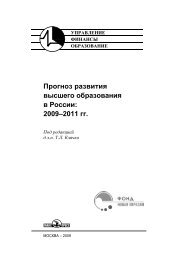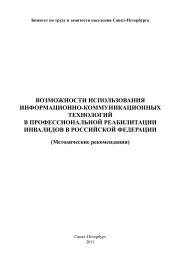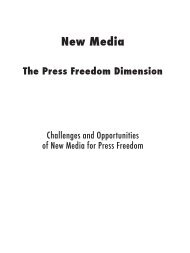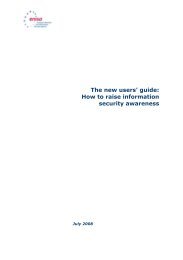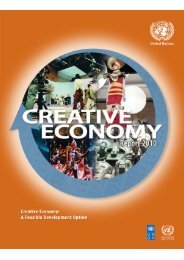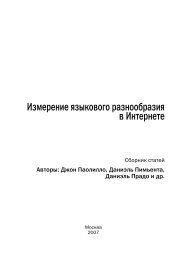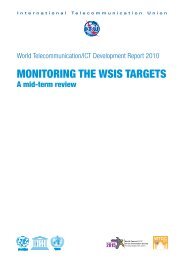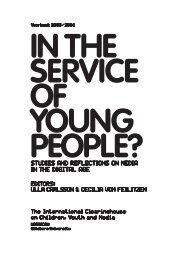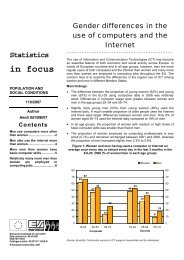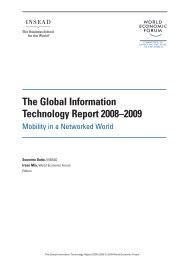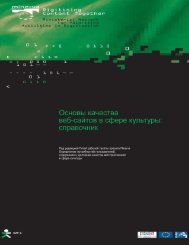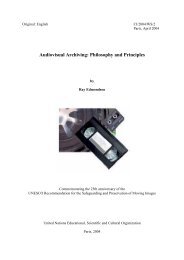Model curricula for journalism education for developing countries ...
Model curricula for journalism education for developing countries ...
Model curricula for journalism education for developing countries ...
Create successful ePaper yourself
Turn your PDF publications into a flip-book with our unique Google optimized e-Paper software.
33<br />
well as having mastered the tools of at least one of the major media.<br />
• Journalists in all media should know how to operate both Macintosh and Windows<br />
desktop and laptop computers, use word processing and picture editing programs,<br />
and create a simple data base. Print journalists should know how to operate film<br />
and/or digital cameras and darkroom and/or computerized picture processing and<br />
editing programs and page production programs. Radio journalists should know<br />
how to use a tape recorder and/or mini-disc recorder, omni-directional microphone,<br />
and how to use audio editing and production equipment and software. Television<br />
journalists should know how to use video cameras, microphones and video editing<br />
equipment. Online journalists should know how to use Web page production<br />
programs and content management systems and digital cameras and picture editing<br />
programs.<br />
Familiarity with present and past examples of best practice in <strong>journalism</strong> in one’s<br />
own country and the world.<br />
Journalists seek inspiration from examples of the best <strong>journalism</strong> in all news media,<br />
in present and past times, in their own country and internationally.<br />
An understanding of <strong>journalism</strong> ethics, including the rights and responsibilities of<br />
the journalist.<br />
Journalists are aware of ethical considerations in making choices and decisions<br />
in their work. These considerations may or may not be enshrined in professional<br />
codes of conduct. Such codes, written or unwritten, are important to journalists<br />
if journalists (rather than the state or other authorities) have developed them. Ethical<br />
considerations, however, should be founded in the journalist’s own moral<br />
philosophy and in an understanding of the rights and responsibilities of the journalist<br />
derived from an awareness of the role of <strong>journalism</strong> in a democracy and of the need<br />
to be accurate, fair and balanced in reporting and writing.<br />
Workplace competencies.<br />
Journalists have the ability to work on deadline, and to work on their own or in<br />
teams, within news media organizations and as freelancers.<br />
B. Journalism and society<br />
• A knowledge of the role of <strong>journalism</strong> in society, including its role in <strong>developing</strong> and<br />
securing democracy.<br />
• An ability to reflect on developments within <strong>journalism</strong>.<br />
• An understanding of how in<strong>for</strong>mation is collected and managed by political,<br />
commercial and other organizations.<br />
• An awareness of the international flow of in<strong>for</strong>mation and its effects on one’s own



